America: Day 3 (by Huw Morgan)
Day 3 took us from the outskirts of Fort Worth, Texas, to the college town of Manhattan, Kansas, home of K-State University and affectionately nicknamed ‘The Little Apple’.
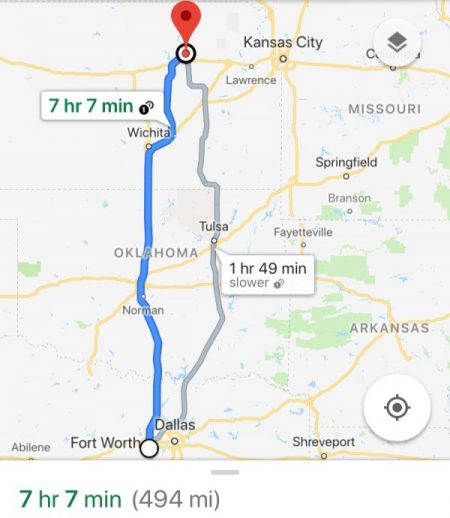
Today’s journey – the longest of the tour
The 494 mile drive seemed at times almost interminable, the sun-scorched prairies stretching as far as the eye could see, occasionally punctured by a roadside service station. ‘Des’ (or designated driver) for the morning session was Simon, who sought redemption for a dramatic misadventure early on by proceeding to put in a sterling 5-and-a-half hour shift behind the wheel.

Not the scenic route: this was basically our view for all 7 hours
As the only member of the group without a driving licence, I’ve been condemned to the ‘hole’ at the rear of the bus, where leg-room is at a premium (though still more comfortable than American Airlines economy!) It has meant a good vantage point for the ride, however, where I’ve been continually amazed by the size and quantity of pickup trucks speeding past us on the interstate.
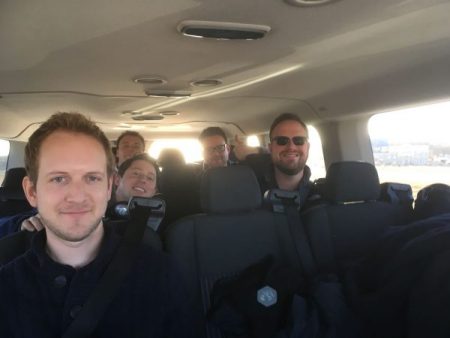
Morale is high at the back of the bus
The downtime on board has also given many of us the chance to catch up on movies, reading, emails, spreadsheets, score learning or arrangements, the battle bus often resembling a mobile office, littered with laptops and iPads.
Reaching Manhattan only 30 minutes before the scheduled sound check, we proceeded to check into our hotel before heading out to the performance venue.
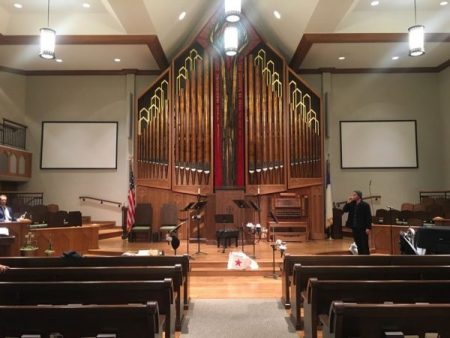
Setting up in Manhattan, Kansas
Most players’ pre-concert routines involve a gentle warm-up, some stretching or breathing drills, but the green room at the First Presbyterian Church afforded Matt Knight and Alan the opportunity to test their table tennis skills as 7:30 approached. Matt, our resident southpaw, dominated the early exchanges, before Alan’s guile and experience came to the fore, no doubt with a little help from his tour book, Matthew Syed’s Black Box Thinking. Final score: 11-9 to Alan, and the trumpets handed a well-timed morale boost before heading onto the platform.
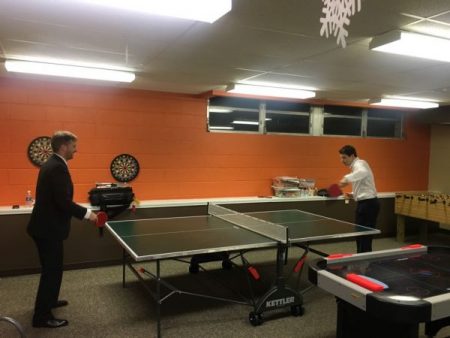
Warming up Septura style
The concert itself was a real success, with yet another hearty welcome and standing ovation from our friendly audience, many of whom dazzled in their purple KSU Trumpet Studio jackets.
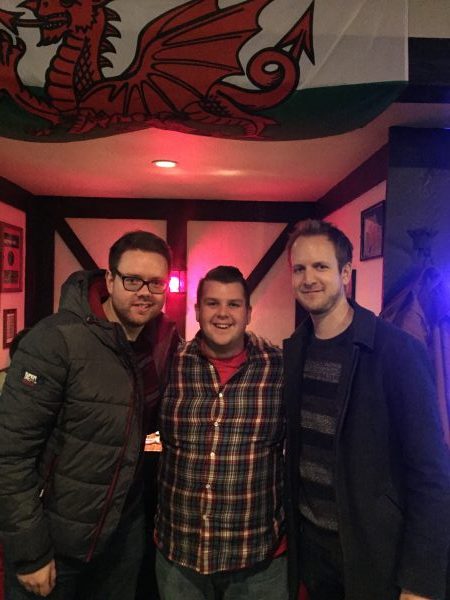
Welsh members Huw Morgan and Simon Cox with new Septura fan Henry Law
After several post-concert pictures and CD sales, we headed downtown to the local Irish pub, accompanied by Henry Law, an enthusiastic, sociable and ever-inquisitive bass trombone student who ensured that we were well looked-after by the charming bar staff. A round (or was it two?!) later and we headed home, ready to rest our limbs before another 6-hour journey to Iowa the following morning…
Tour stats:
Concerts: 3
Standing ovations: 3
Distance travelled: 5772 miles
Time on the bus: 12 hrs 15 mins
Time on planes: 11 hrs 31 mins
Road incident near-misses: 1

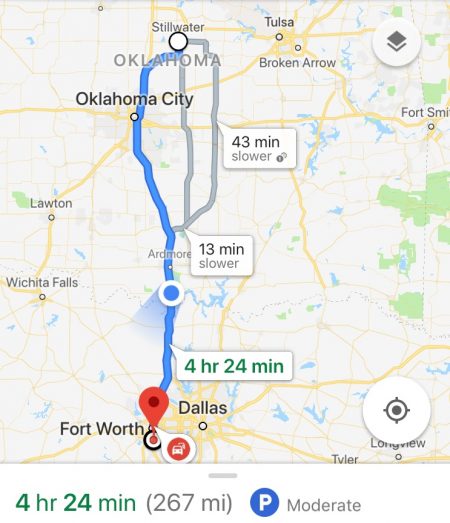
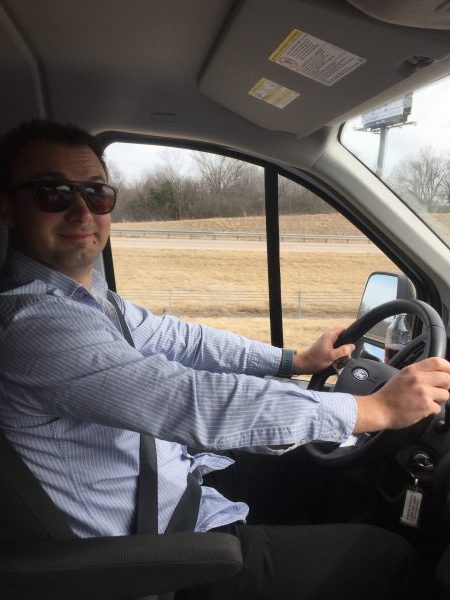
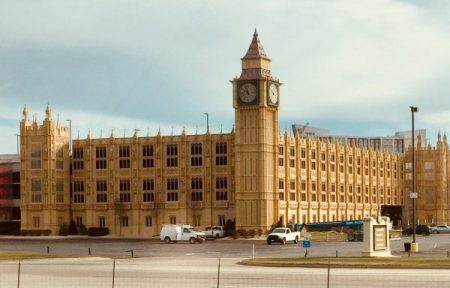
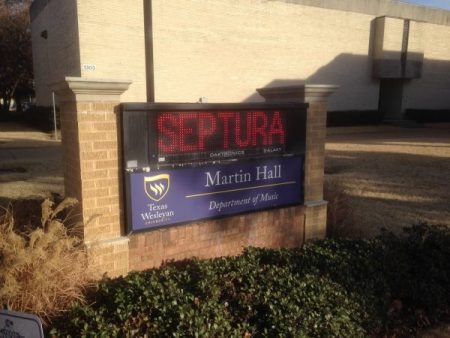
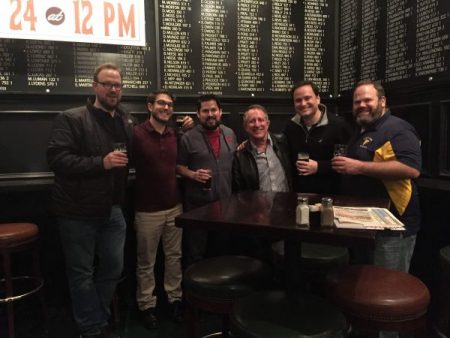
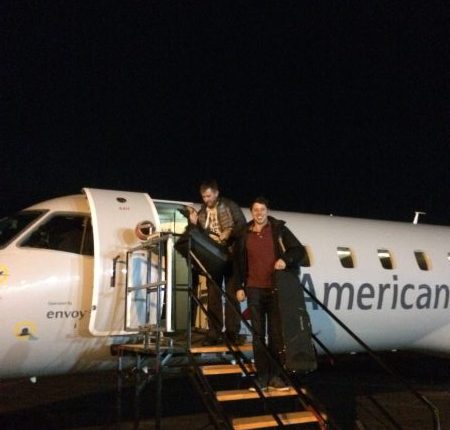
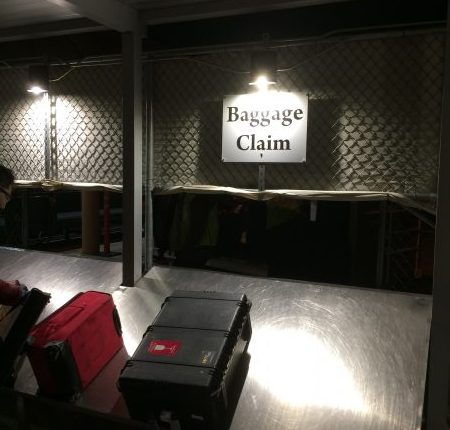
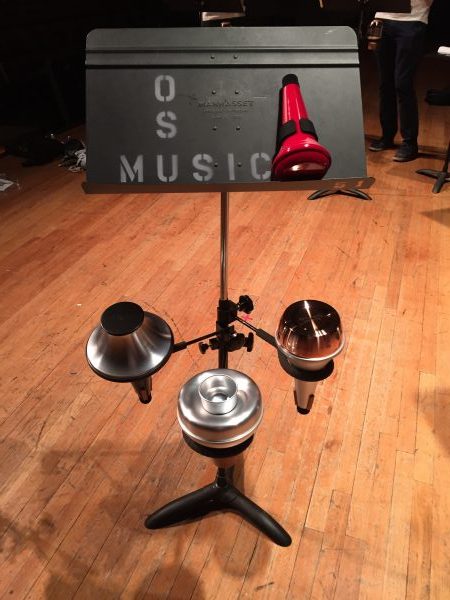
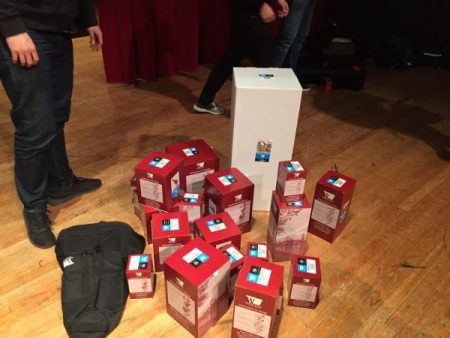


 The process actually began about a year ago. We’d just finished recording Christmas with Septura, and so were looking to the next volume. Our series is broadly planned out (we can tell you roughly what we want to p
The process actually began about a year ago. We’d just finished recording Christmas with Septura, and so were looking to the next volume. Our series is broadly planned out (we can tell you roughly what we want to p The recording itself is always very intense – we do two three-hour sessions a day, three days in a row. Normally we aim to get 20 minutes of music a day (and just about manage) but because of the length of this disc we needed 23. We felt better prepared than ever before though, and, in the familiar surroundings of St Paul’s New Southgate, we sailed through the Elgar on the first day, with our Producers Phil Rowlands and Jim Unwin expertly guiding us through the musical rigours of recording. Day 2 was the big one: the Walton. And for the first time in our recording history disaster struck. Its form: an oil leak, leaving Alan stranded at the side of the M40 as the session was due to start. A two-and-a-half hour delay put us on the back foot, but the group rallied and we ended the day weary at 11.15 pm, but relieved to have the Walton in the can. The final day is always a bit of a challenge – tired faces plus time pressure make for an intense race to the finish. This time the Finzi and Parry were actually fairly straightforward, and we made it to our favoured watering hole, The Charles Lamb, in plenty of time for last orders.
The recording itself is always very intense – we do two three-hour sessions a day, three days in a row. Normally we aim to get 20 minutes of music a day (and just about manage) but because of the length of this disc we needed 23. We felt better prepared than ever before though, and, in the familiar surroundings of St Paul’s New Southgate, we sailed through the Elgar on the first day, with our Producers Phil Rowlands and Jim Unwin expertly guiding us through the musical rigours of recording. Day 2 was the big one: the Walton. And for the first time in our recording history disaster struck. Its form: an oil leak, leaving Alan stranded at the side of the M40 as the session was due to start. A two-and-a-half hour delay put us on the back foot, but the group rallied and we ended the day weary at 11.15 pm, but relieved to have the Walton in the can. The final day is always a bit of a challenge – tired faces plus time pressure make for an intense race to the finish. This time the Finzi and Parry were actually fairly straightforward, and we made it to our favoured watering hole, The Charles Lamb, in plenty of time for last orders.